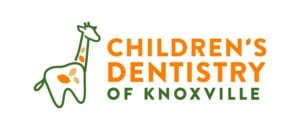Patient Resource Center
Explore our comprehensive information, tips, and tools to support your child’s oral health journey. Discover everything you need to know about our dental services, treatment processes, and how to maintain a healthy smile.
Frenuloplasty vs. Frenectomy: What’s the Difference?
Learn the differences between frenuloplasty and frenectomy procedures for tongue-ties and lip-ties. Understand treatment options, recovery times, and benefits to help make informed decisions about your child's oral health care.
Frenotomy vs. Frenectomy: What’s the Difference?
If you've been told your child needs treatment for a tongue or lip tie, you might have heard two similar-sounding terms: frenotomy and frenectomy.
Lingual Frenectomy: When Is It Needed?
A lingual frenectomy is a simple surgical procedure that can greatly improve your child’s oral health and overall well-being.
Labial Frenectomy: When Is It Needed?
A labial frenectomy is a surgical procedure that can help improve your child’s oral health and comfort. In this blog post, we’ll explain what a labial frenectomy is, when it might be necessary, and how it can help your child's dental development.
What Is a Frenectomy?
A frenectomy is a simple and safe dental procedure that can help your child’s oral function by removing or loosening a small piece of tissue known as the frenum.
Dental Sealants for Kids: What You Need to Know
Find out how dental sealants can be a safe and effective way to keep your child's teeth cavity-free.
Baby Teeth Care Tips: Everything You Need to Know
Check out these useful tips for keeping your child's teeth and gums healthy!
What Happens During a Pediatric Dental Exam?
Discover the scoop on why your little one ought to visit the dentist before they hit the big one!
When Should I Take My Baby to the Dentist?
Find out why it's important for your baby to have their first dental visit by the time they turn one.
